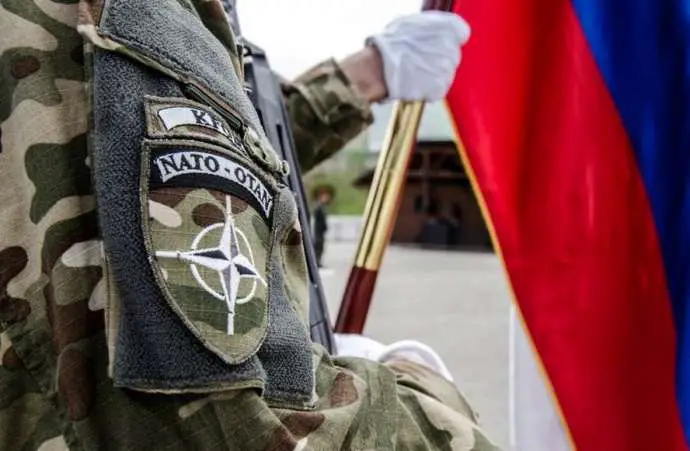STA, 17 March 2019 - Slovenia became a full member of NATO on 29 March 2004, accomplishing one of its strategic foreign policy goals. Fifteen years later, the alliance is considered the keystone of Slovenian and European security, although it is also a source of demands for a fairer distribution of obligations, especially in terms of defence funding.
Slovenia had been a part of the Non-Aligned movement in the era of former Yugoslavia, but when it became independent the country set out to become a member of all significant global as well as Euro-Atlantic organisations, in particular the EU and NATO.
It had had aspirations of being one of the first countries from the former Eastern bloc to be invited to join NATO, but to its chagrin, the alliance invited only Czechia, Hungary and Poland in 1999.
The invitation to begin accession talks was issued three years later at the Prague summit. According to the then foreign minister, Dimitrij Rupel, the US decided to open the doors wider in part due to the 9/11 terrorist attacks.
Popular support for NATO membership was weaker than support for the EU, as demonstrated during both accession referendums on 23 March 2003. While the EU membership was backed by almost 90% of voters, only 66% of them voted in favour of joining NATO.
Slovenia became a full member on 29 March 2004 along with Bulgaria, Estonia, Latvia, Lithuania, Romania, and Slovakia.
Despite expanding significantly since its inception, the alliance is still predicated on the principle of collective defence set down in Article 5 of the North Atlantic Treaty, which states that an attack against one member is an attack against all of them.
The Defence Ministry also points out that NATO established itself as a bastion of liberal democracy, human rights and shared Euro-Atlantic values. Being a member, Slovenia has thus solidified its position among stable democracies in Europe and in the world.
After the end of the Cold War, NATO transformed into a major player securing global peace and security, in particular through peacekeeping operations in the Balkans.
But it has also engaged in combat, most notably in Afghanistan, which involved NATO participating in state-building and combat operations against the Taliban for 13 years until it was formally ended in 2014.
NATO Secretary General Jens Stoltenberg has described Slovenia as a valued ally that contributes to collective security and defence in many ways. The other allies acknowledge an important role of Slovenia in operations, especially in the Kfor mission in Kosovo, with Slovenian soldiers receiving high praise for their achievement.
But being at the bottom of the defence spending rankings, Slovenia has been warned about its low contributions. Stoltenberg personally pointed that out during his visit to Ljubljana in October last year.
NATO leaders agreed at the Wales summit in 2014 to increase the share of defence expenditure to 2% of GDP in ten years, after it had shrunk due to the financial crisis. Slovenia is one of the seven allies that do not plan to meet this target by 2024; it expects to allocate only 1.5% of GDP for defence budget that year.
The structure of the Slovenian defence budget is an issue as well. All allies are supposed to dedicate at least 20% of the financing to defence modernisation, but in Slovenia this share is only 8.2%. This is largely because Slovenia allocates the highest share of defence budget to soldiers' pay - almost 72.5%.
When it comes to increasing defence spending, the minority government is in a bind since the opposition Left opposes higher spending. However, a "fairer distribution of obligations" does not only concern Slovenia but the whole Europe, since only seven members of the 29 members allocate 2% of GDP to defence.
Slovenia plans to celebrate its 15th anniversary with a ceremony in Brdo pri Kranju on 20 March, with former NATO Secretary General George Robertson as the guest of honour.






